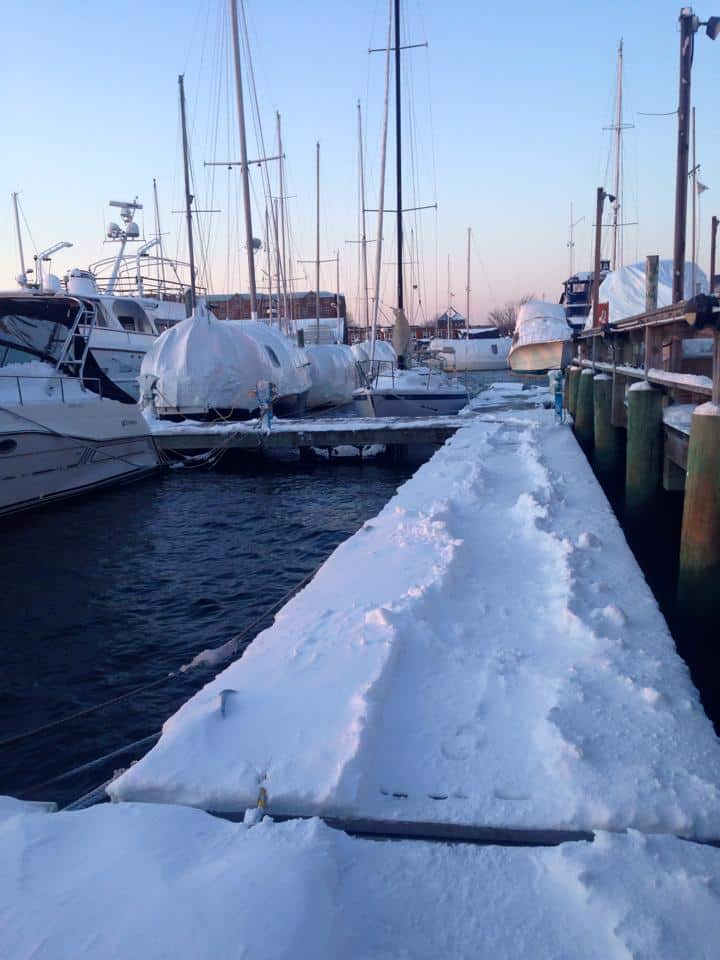
If you are a cold weather cruiser, or a liveaboard who keeps your boat in the water all winter, avoiding an unexpected swim in icy water could be a lifesaver. If you do fall in however, it’s important to know exactly what to do. If you fall overboard, slip off the dock, or otherwise end up in the freezing waters, remember these important tips.
Brace Yourself: This may be difficult to do at first but due to the immediate change in body temperature and shock from the cold water, the body’s immediate reaction is going to be to gasp for air and hyperventilate. Breathing in the freezing water increases the chances of drowning.
Keep Calm: Do not flail your arms; this will release more body heat. The body loses 32 times more heat in cold water than in cold air. Panicking will do nothing, keep your head above the water, grab onto ice, the hull, or dock if you can.
Do Not Undress Winter Clothes: Keep winter clothing or foul weather gear on while in the water, it will not drag you down. It will help keep in body heat and any air inside the clothing will help you float.
Throw, Don’t Go: Never enter the water to rescue someone. If someone is there to help you it is safer for that person to throw a lifesaving device, halyard, or any other rope into the water, wait until you grab hold and then tow you to safety. Otherwise you could both end up in the water.
Get Warm: Once out of the water seek medical attention to bring body temperature back to normal.
Courtesy of US Swim School Association








